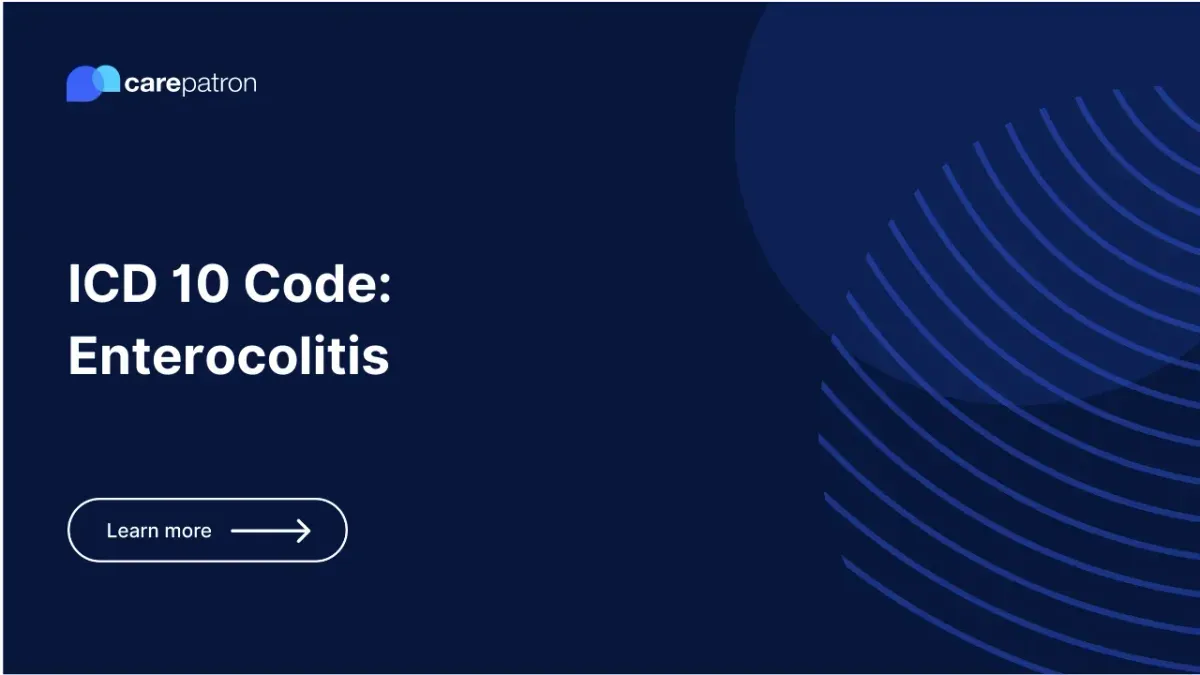
Enterocolitis ICD-10-CM Codes
Explore the commonly used ICD-10 codes for Enterocolitis. Learn about their billability, clinical information, and synonyms associated with this condition.
Use Code
Commonly asked questions
Use the Enterocolitis ICD code when documenting or billing for a patient diagnosed with enterocolitis. It represents this specific medical condition in records and claims.
Common treatments include symptom relief, addressing the underlying cause, rehydration therapies, antibiotics (for bacterial infections), immunosuppressants (for autoimmune cases), pain relievers, dietary modifications, and probiotics.
A diagnosis code for Enterocolitis is an alphanumeric code used to represent the diagnosis of enterocolitis. It standardizes communication and categorization of this medical condition for healthcare providers, insurance companies, and researchers.
EHR and practice management software
Get started for free
*No credit card required
Free
$0/usd
Unlimited clients
Telehealth
1GB of storage
Client portal text
Automated billing and online payments
